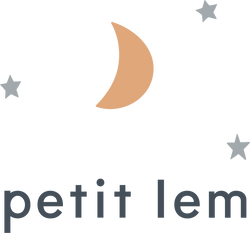So, how many languages do you speak?
As our world gets increasingly smaller with technology driving us toward easier access to just about anything, being able to communicate in various languages will no longer be just an asset, it will become a necessity. Isabelle Simard, polyglot linguist and speech-language pathologist specializing with multilingual children (Ortho Fun Les Petits Cocos) believes there are only benefits in raising a multilingual child. In fact, the earlier you begin teaching them, the better. She shares some of her insights to give you a better understanding of what teaching your baby multiple languages can mean—especially in the long run.
What are the biggest advantages of learning multiple languages?
Aside from the obvious social advantage, there are also positive cognitive effects as favoring synaptic connexions and the de-lateralization of the brain (decreasing chances of suffering a stroke and increasing speed of recovery if one occurs), as well as more efficient memory skills and a better mental health. In brief, the multilingual mind strengthens itself.
When is a good time to introduce a language to your baby?
It’s never too early to introduce any number of languages as the brain is wired to learn them all. Babies are sensitive to any language until approximately 8-9 months. Brain plasticity is such that a language learning task is easier before the age of 5 years, yet children can learn a foreign language and speak it as a native (meaning without an accent) until the age of 12.
What is the best way to teach a language to your child?
The most optimal way to teach a language is the one person\one language rule. One parent speaking one language and the other one another. However, we as experts, consider that the best way is the most natural one. If a parent, for example, is a fluent multilingual, they shouldn’t prevent themselves from speaking to their child in more than one language. For instance, in expression emotions, express them however they come spontaneously. Therefore, children can also learn them through their environment, like specific neighbourhoods where they are exposed to a language, not native to their parents or whilst practicing an activity, in language playgroups, workshops or classes, for example. Making language learning fun for children is certainly the most effective way to teach them.
What are some misconceptions on this subject?
Code switching, which means uttering sentences in different languages or code mixing, when you insert one word in a language different than the one used in the sentence, is quite common (especially in Montreal) and should not be considered as an error, but rather a multilingual strategy to manifest a thought, instead of not finding the correct word and leaving the sentence unfinished.
Are there any disadvantages to learning several languages at the same time?
There are no disadvantages (as believed many years ago), however some children might take more time to learn vocabulary since one concept can have two or more words associated to it, but that is not necessarily to be expected. The lexical content being greater to acquire does not always warrant more time.
Editor’s tips:
- Speaking to your baby as early as in the womb means they are recognizing your language through the sounds and vibrations before they ever see the light of day. Talk to your baby as often and as much as possible, describe what you’re seeing and feeling—you might feel awkward (because you look like you’re talking to yourself) but you’re actually benefitting your baby and starting the learning process early.
- You might want to prioritize your mother tongue in the beginning since what will come naturally to you will be to sing the lullabies you grew up with and play the games that your own mother played with you. Remember, teaching your child a language should be fun and stress-free.
- Think of languages your child will learn necessarily in society or at school, and if possible, try to prioritize the minority language at home. If you create a good base in the years before they get to school, and continue to use the language years after, they’ll be just as fluent.
- Read as much as possible as early as possible. Books are your best friend in language learning. Even if you think a 1-month old can’t possibly understand the contents of a book, they can definitely pick up in the sounds and vibrations of the language.
- The relationships your child develops with their grandparents, aunts and uncles and other close family members is invaluable. Think about what tools your child will need to communicate with them. If you teach them your parents’ native language, or if they only speak to your baby in that language, the bond will be that much stronger.







